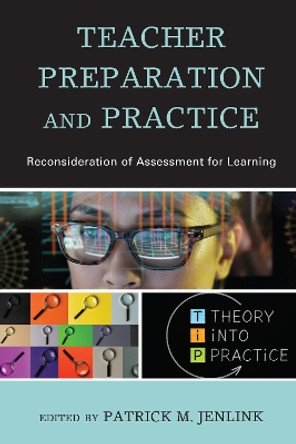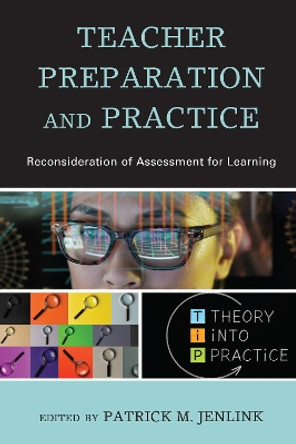Description
About the Author
Patrick M. Jenlink is Regents Professor, the E.J. Campbell Endowed Chair: Professor of Educational Leadership, and Professor of doctoral studies in the Department of Secondary Education and Educational Leadership. His experience includes STEM teaching with emphasis in biology I & II, chemistry, physics, human anatomy and physiology and technology, as well as serving as a building administrator, school district superintendent, evaluator and research consultant on NSF funded Statewide Systemic STEM initiative in Michigan, senior researcher on funded STEM initiatives in Oklahoma with NASA and Oklahoma State University, and senior researcher for a grant funded STEM initiative in Texas, the Texas State Middle Level Mathematics Project. Karen Embry-Jenlink is a professor of doctoral studies in educational leadership at Stephen F. Austin State University in Nacogdoches, Texas. Dr. Embry-Jenlink has directed/served on several initiatives to support STEM educator preparation and educator and workforce development, including the Texas Middle Level State Mathematics Project, U.S. Integrated Workforce Standards, Texas Regional Collaboratives for Excellence in Science and Mathematics, College and Career Readiness Initiative Mathematics Faculty Collaborative, Talented Teachers For Training in Texas, and she appointed the ATE / NASA Education Commission on STEM Education in the Future.
Reviews
Patrick M. Jenlink and Karen Embry Jenlink have compiled an important and timely resource for professionals in the field of STEM teacher preparation programs. This well-written volume provides a clear argument for utilizing an interdisciplinary perspective when preparing teachers who will guide student learning in the twenty-first century in the fields of science, mathematics, engineering and technology. As an engineer and STEM education scholar for many years, it is refreshing to note the importance given not only to teaching strong content fundamentals but also to infusing pedagogy with cultural relevance and real-world contexts that celebrate creativity and innovation. The guidance of the editors and the other respected contributing authors will positively impact not only faculty who prepare teachers and their teacher candidates, but also the young K-12 students who will learn from professionals who model the interdisciplinary nature of learning, collaborating and problem solving as future professionals in the STEM workforce. -- Araceli Martinez Ortiz, Executive Director, LBJ Institute for STEM Education and Research; Research Associate Professor of Engineering Education, College of Education, Texas State University
The excitement of learning science and mathematics comes from wrestling with how science is thoroughly intertwined with engineering and technology and bound together with societal and cultural values. STEM teachers represent our society's front line for engendering a love for science in the children that follow in our footsteps, and this book carefully outlines both the barriers to fruitful STEM teaching and provides navigable pathways to success that our teachers-and ultimately our children-need right now. -- Timothy F. Slater, University of Wyoming Endowed Professor; Senior Scientist, CAPER Center for Astronomy & Physics Education Research
STEM educators believe in the necessity and power of interdisciplinary learning, but few know how to create rich cross-boundary learning opportunities. The authors in STEM Teaching: An Interdisciplinary Approach creatively address this problem where it must begin-with educating teachers. The book is a rich and comprehensive resource for teacher educators who want to learn about, or are engaged in, STEM interdisciplinary learning, teaching, and teacher education. -- James Hiebert, Robert J. Barkley Professor of Education, School of Education, University of Delaware
STEM Teaching: An Interdisciplinary Approach is a disruptive book about how to approach and how to teach in a new inspired way for new generations of teachers. The authors in this book take readers to the suggestive world of the interdisciplinary perspective, a holistic vision of teacher education, very useful to anyone who wants to connect different disciplines for a real education for a real life. It is a must-read for teachers, educators, students and researchers with a step forward list of recommendations to change our thinking level about STEM education. -- Luis Marques Molias, Dean, Faculty of Educational Sciences and Psychology, Universitat Rovira i Virgili, Spain
With the growing demand for individuals with expertise in STEM fields, STEM Teaching: An Interdisciplinary Approach is not only timely but is imperative. It provides support for teacher educators wishing to prepare new teachers with the expertise needed to promote STEM through an interdisciplinary approach and redefines what it means to be literate in today's world. -- Shirley Lefever-Davis Ph.D, Dean, College of Education, Wichita State University, 2015-2017 president, Association of Teacher Educations (ATE)
Book Information
ISBN 9781475822755
Author Patrick M. Jenlink
Format Paperback
Page Count 186
Imprint Rowman & Littlefield
Publisher Rowman & Littlefield
Weight(grams) 263g
Dimensions(mm) 223mm * 151mm * 11mm










